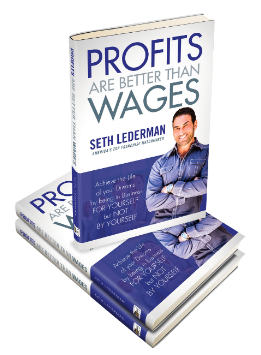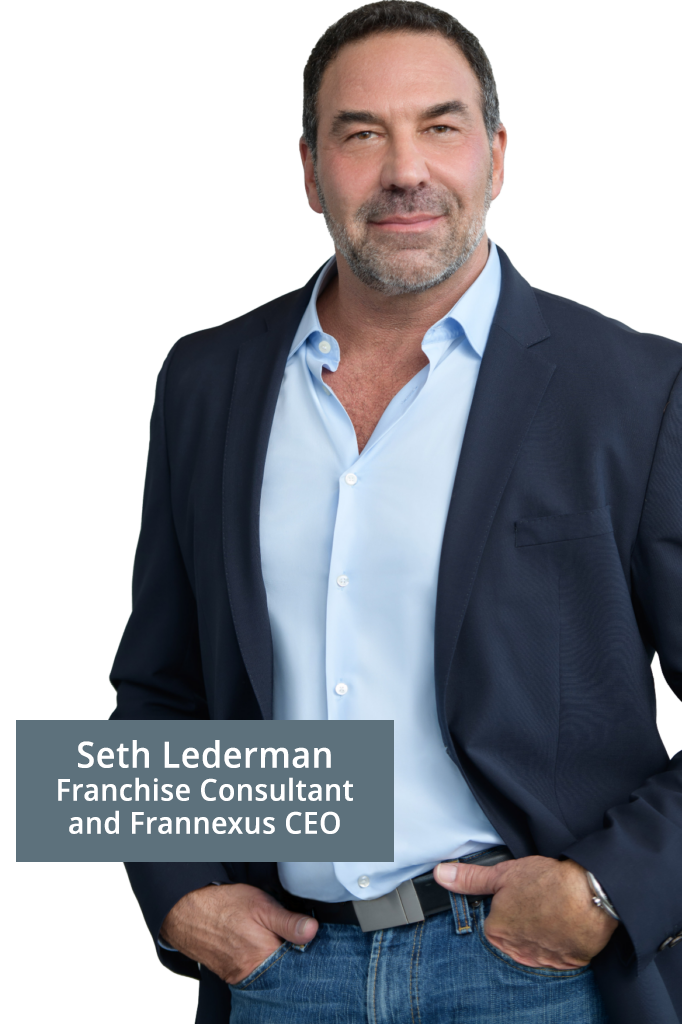Buying a Small Business: 5 Rules to Follow
 by Seth Lederman
by Seth Lederman
When you purchase an established business, it already has the equipment and inventory, a location, employees, customer loyalty, and proof that the business can make money. And if you choose to start a franchise, you have the support and first-hand knowledge from the franchisor to hit the ground running from day one.

As we head into 2022, perceptions about work/life, or just life, in general, have changed for many who had their worlds turned upside down. People are finding that they enjoy the freedom of remote working or flexible scheduling, are considering switching gears and owning a business of their own. But if you want to find success right out the gate, don’t reinvent the wheel; your best option is to buy an established business that is already turning profits.
Statistics tell us that over the next twenty years, baby boomers will start to retire. And that, of their 12 million owned businesses, 70% will change hands. That equals a lot of opportunities for young entrepreneurs. Buying an existing business is a less risky proposition than starting from scratch. When you purchase an established business, it already has the equipment and inventory, a location, employees, customer loyalty, and proof that the business can make money. And if you choose to start a franchise, you have the support and first-hand knowledge from the franchisor to hit the ground running from day one.
If you are ready to begin down the road of ownership, these are five rules to follow.

Rule One: Research
The first rule of thumb is to do the research and decide what kind of business you want to own. Ask yourself questions like, if you currently operate a company, will the business you buy have any overlapping practices or skills that you already possess? What types of skills do you have that will be an asset to the company you are considering buying? If you are going to take the leap, don’t do it out of faith. Learn as much about the company and industry as you can before you pull the trigger. Go to trade shows to learn more, talk to people in the industry, and learn about what type of people will be your potential customers. Delve into your competition to decipher what they are doing right now to be successful and also what kinds of trends they might be branching off into for the future.
“Your work is going to fill a large part of your life, and the only way to be truly satisfied is to do what you believe is great work. And the only way to do great work is to love what you do.” Steve Jobs
“Your work is going to fill a large part of your life, and the only way to be truly satisfied is to do what you believe is great work. And the only way to do great work is to love what you do.” Steve Jobs
Rule Two: Find a Matchmaker
The next step is to find a business to buy. You have many options to locate a business seller, like in-person auctions and online marketplaces. But the best leads, typically, are those contacts that are already well established in the industry, advisers, or brokers. In-depth business analysis is critical, so engage the help of accountants, lawyers, and franchise consultants who can thoroughly investigate the finances and legalities of the sale. When choosing professionals to aid in your purchasing decision, make sure that they know the industry that you want to buy into well.
Doing the best at this moment puts you in the best place for the next moment! Oprah Winfrey
Oprah Winfrey

Rule Three: Open the Books and do Your Due Diligence
Before you sign on any dotted line, make sure you know what you are getting for your money. You must review the company’s financial records and legal documents to rule out any insurance disputes, tax audits, or pending litigation against the company or business. Sometimes it takes turning over many rocks to find things that the current owner might not want to reveal. So, leave no stone unturned to ensure that you aren’t buying more than you bargained for. Search for any outstanding liens, and if the company is a Corporation or LLC, look to the Certificate of Good Standing along with the operating agreement and bylaws. Lean on your adviser to thoroughly vet the company before you make any final decision or buying transactions. And make sure you take the time necessary to follow all leads and allow those who know best to guide you.
If you are considering a franchise, be sure to go over the Details of the Franchise Disclosure Document. The FTC is responsible for regulating franchising, and they require that the franchisor provide full disclosure of their financial position, earnings, any existing executives background information, a copy of the operation manual, a copy of the agreement, initial and ongoing fees, territory restrictions and all other information about the business itself. The Franchise Disclosure Document is your guide to the current wealth and the future projected wealth of the company.

Rule Four: Get to Know Your Customers
A business will be most successful if the community where it is located needs it and is holding its competitive position. Make sure you understand the saturation of your market before you decide to buy a business or franchise. Ask questions like “What is the makeup of the current customer base?” “Why do they choose to remain loyal?” and “Are they currently happy with the way that the company or business is operating and with the products and services the business offers?” It is essential to understand why their current customers remain loyal. Is it that they like the original or current owner? And if that is why, can you ensure that they will stay put if the business is sold? Investigate precisely what makes your customers tick and also whether they will stay put if the company switches hands.

Rule Five: Great Small Business Ideas for Beginners
With so many options available to buy an existing small business or franchise, how do you even go about finding the one that is right for you? It isn’t just about how well the company is currently doing, but also vital for you to take a comprehensive look at what the future demand will be. As we rebound from COVID, the landscape will be different. Considering the variables both within the company and external from it will give you a better understanding of what opportunities have staying power.

10 Businesses Ideas to Help you get Started
- Landscaping Business
- Home Cleaning Service
- Courier
- Errand Service
- Etsy Seller
- Home Painter
- Photographer
- Meal Preparation Service
- Interior Decorator
- Pool Cleaner
Conclusion
If you are ready to be a business owner, start to create wealth, and enjoy more job stability, then you have two options; you can start your own business, or you can buy a franchise or established company. Either path you choose will come with some required hard work. But if you buy a franchise or business, you don’t have to start from scratch or assume the risks associated with beginning something new. There are a ton of opportunities available to begin where another successful business owner will leave off, and to make it your own today!
DISCOVER A BETTER WAY TO EARN WHILE LIVING
Profits are Better Than Wages

In “Profits are Better Than Wages”, experienced franchise advisor, Seth Lederman answers the “how” and “why” of going into business for yourself.
Get the News that Franchise Investors Want
Sign-up for FranBlog
Sign-up for occasional updates on the latest opportunities in franchising



CONTACT THE EXPERIENCED ADVISORS AT FRANNEXUS
Your franchise search just got easier with Frannexus
NO COST TO YOU
OUR FEES ARE PAID BY THE FRANCHISE BRANDS

